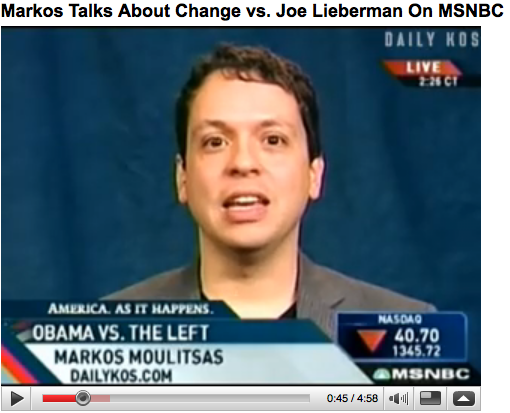After eight years of President Bush, we almost don't know how to function without him - almost. But before we move on, we should pause to remember just what we're leaving behind.
Just over two years into George W. Bush's presidency, The American Prospect featured Bush on its cover under the headline, "The Most Dangerous President Ever." At the time, some probably thought it a bit over the top. But nearly six years later, it's worth taking a moment to reflect on the multifaceted burden that will soon be lifted from our collective shoulders.
Since last week, I have stopped short and shaken my head in amazement every time I have heard the words "President-elect Obama." But it is equally extraordinary to consider that in just a few weeks, George W. Bush will no longer be our president. Let me repeat that: In just a few weeks, George W. Bush will no longer be our president. So though our long national ordeal isn't quite over, it's never too early to say goodbye.
Goodbye, we can say at last, to the most powerful man in the world being such a ridiculous buffoon, incapable of stringing together two coherent sentences. Goodbye to cringing with dread every time our president steps onto the world stage, sure he'll say or do something to embarrass us all. Goodbye to being represented by a man who embodies everything our enemies want the people of the world to believe about America - that we are ignorant, cruel, and only care about foreign countries when we decide to stomp on them. Goodbye to his giggle, and his shoulder shake, and his nicknames. Goodbye to a president who talks to us like we're a nation of fourth-graders.
And goodbye, of course, to Dick Cheney. Goodbye to the man whose naked contempt for democracy contorted his face to a permanent sneer, who spent his days in his undisclosed location with his man-sized safe. And while we're at it, goodbye to Cheney's consigliore David Addington, as malevolent a force as has ever left his trail of slime across our federal institutions.
Goodbye, indeed, to the entire band of liars and crooks and thieves who have so sullied the federal government that belongs to us all. We can even say goodbye to those who have already gone, to Rummy and Scooter, to Fredo and Rove, tornados of misery left in their wake.
Goodbye to the rotating cast of butchers manning the White House's legal abattoir, where the Constitution has been sliced and bled and gutted since September 11. Goodbye to the "unitary executive" theory and its claims that the president can do whatever he wants - even snatch an American citizen off the street and lock him up for life without charge, without legal representation, and without trial. Goodbye to the promiscuous use of "signing statements" (1,100 at last count) to declare that the law is whatever the president says it is, and that he'll enforce only those laws he likes. Goodbye to an executive branch that treats lawfully issued subpoenas like suggestions that can be ignored. Goodbye to thinking of John Ashcroft as the liberal attorney general. Goodbye to the culture of incompetence, where rebuilding a country we destroyed could be turned over to a bunch of clueless 20-somethings with no qualifications save an internship at the Heritage Foundation and an opposition to abortion. Goodbye to the "Brownie, you're doin' a heckuva job" philosophy, where vital agencies are turned over to incompetent boobs to rot and decay. Goodbye to handing out the Medal of Freedom as an award for engineering one of the greatest screw-ups of our time. Goodbye to an administration that welcomed gluttonous war profiteering, that was only too happy to outsource every government function it could to well-connected contractors who would do a worse job for more money.
Goodbye to the Bush Doctrine of preemptive war. Goodbye to the lust for sending off other people's sons and daughters to fight and kill and die just to show your daddy you're a real man. Goodbye to playing dress-up in flight suits, goodbye to strutting and posing and desperate sexual insecurity as a driver of American foreign policy. Goodbye to the neocons, so sinister and deluded they beg us all to become fevered conspiracy theorists. Goodbye to Guantanamo and its kangaroo courts. Goodbye to the use of torture as official U.S. government policy, and goodbye to the immoral ghouls who think you can rename it "enhanced interrogation techniques" and render it any less monstrous.
Goodbye to the accusation that if you disagree with what the president wants to do, you don't "support the troops."
Goodbye to stocking government agencies with people who are opposed to the very missions those agencies are charged with carrying out. Goodbye to putting industry lobbyists in charge of the agencies that are supposed to regulate those very industries. Goodbye to madly giving away public lands to private interests. Goodbye to a Food and Drug Administration that acts like a wholly owned subsidiary of the pharmaceutical industry, except when it acts like a wholly owned subsidiary of the fundamentalist puritans who believe that sex is dirty and birth control will turn girls into sluts. Goodbye to the "global gag rule," which prohibits any entity receiving American funds from even telling women where they can get an abortion if they need it.
Goodbye to vetoing health insurance for poor children but rushing back to Washington to sign a bill to keep alive a woman whose cerebral cortex had liquefied. Goodbye to the ban on federal funding of embryonic stem-cell research.
Goodbye to the philosophy that says that if we give tax cuts to the rich and keep the government from any oversight of the economy, prosperity will eventually trickle down. Goodbye to the thirst for privatizing Social Security and to the belief that the success of a social safety-net program is what makes it a threat and should mark it for destruction. Goodbye to the war on unions and to a National Labor Relations Board devoted to crushing them. Goodbye to the principle of loyalty above all else, that nominates Harriet Miers to the Supreme Court and puts Alberto Gonzales in charge of the Justice Department. And goodbye to that Justice Department, the one where U.S. attorneys keep their jobs only if they are willing to undertake bogus investigations of Democrats timed to hit the papers just before Election Day. Goodbye to a Justice Department where graduates of Pat Robertson's law school roam the halls by the dozens, where "justice" is a joke.
Goodbye to James Dobson and a host of radical clerics picking up the phone and hearing someone in the White House on the other end. Goodbye to the most consequential decisions being made on the basis of one man's "gut," a gut that proved so wrong so often. Goodbye to the contempt for evidence, to the scorn for intellect and book learnin', to the relentless war on science itself as a means of understanding the world.
Goodbye, goodbye, goodbye to it all.
Though President Obama will be spending most of his time cleaning up the mess George Bush made, we probably won't have Dubya to kick around anymore. It's hard to imagine Bush undertaking some grand philanthropic effort on the scale of the Clinton Global Initiative, or hopping around to international trouble spots like Jimmy Carter. Republicans won't be asking him to speak on their behalf, and publishers are reportedly uninterested in the prospect of a Bush memoir. His reign of destruction complete, Bush will return to Texas and fill his days with the mundane activities of a retiree - puttering around the yard, reading some magazines, maybe enjoying that new Xbox Jenna gave him for Christmas ("I'm the Decider, and I decide to spend this afternoon playing Call of Duty 4").
This presidency is finally over. We can say goodbye to an administration whose misdeeds have piled so high that the size of the mountain no longer shocks us. In our lifetimes, we will see administrations of varying degrees of competence and integrity, some we'll agree with and some we won't. But we will probably never see another quite like the one now finally reaching its end, so mind-boggling a parade of incompetence and malice, dishonesty, and immorality. So at last - at long, long last - we can say goodbye.
And good riddance.
--------
Paul Waldman is a senior fellow at Media Matters for America and the author of "Being Right is Not Enough: What Progressives Must Learn From Conservative Success." The views expressed here are his own.






























136 comments
Post a Comment